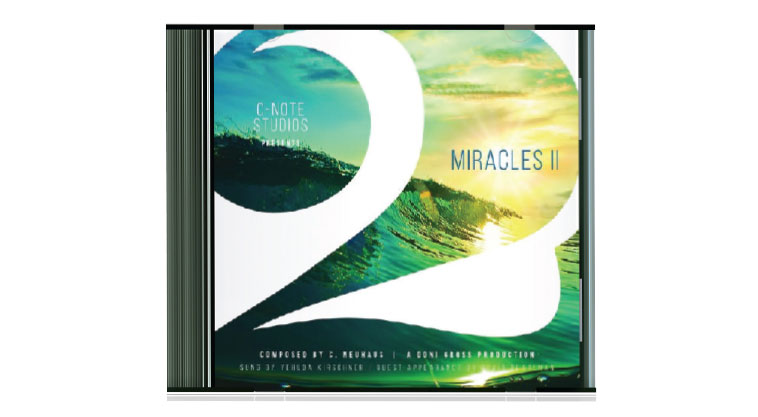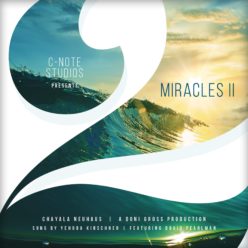The lyrics of Chayala Neuhaus’s song “Holding Back the Tide,” just released on her second album Miracles II, are comforting on so many levels.
“Haomer layam ad poh savo / For The Master who rules the sea has willed it so / For despite their rushing strides Hashem alone presides / Yes He is there and He’s holding back the tides / No mighty wind or waves of roaring thunder / Can ever be strong enough to pull me under.”
Mrs. Neuhaus wrote the song in thanks for her husband’s recovery from an injury. “My husband fractured his spine and was immobilized for a while. One day we drove to the ocean and watched the thrashing waves, and he told me the words of the Medrash on the pasuk in Iyov, ‘Veomar ad po savo,’ that the mighty waters should really overwhelm the land, but HaKadosh Baruch Hu says ‘Ad po, you can’t go any further.’ The sands may look soft but Hashem’s word is an iron barrier. Every wave breaks upon the shore. My song celebrates this and relates the concept to all those trials which accost us in life. Hashem limits them — they cannot drown us.”
Like innumerable Jewish musicians today, Mrs. Neuhaus can trace the blossoming of her inborn musical ability and beginnings of her artistic journey to the hothouse of talent in summer camp. “I attended Camp Bnos for many years. There, Dina Storch proved that Jewish women could write songs, and Rebbetzin Shonnie Perr decided that I could do things that I didn’t believe I could.” One summer, when Chaya was 11 years old, Rebbetzin Perr called her up. Dina wasn’t available to play the camp song — could she step in?
Chayala describes the process of putting out her first album, Miracles, in 2015, as “scary.” My songs had mostly been enjoyed by female audiences up to that point. Taking the leap to bring them to the wider world was a big risk—I didn’t know if it would be marketable.” But Miracles, with her compositions sung by child vocalists Dovid Pearlman and guest David Lowy, was indeed a hit. And this Chanukah, with the release of sequel Miracles II, everyone — not just girls in camp — can again be inspired by contemporary compositions about the miracles we experience every day. (Originally featured in Mishpacha, Issue 739)



